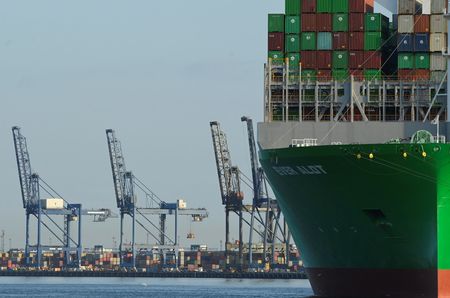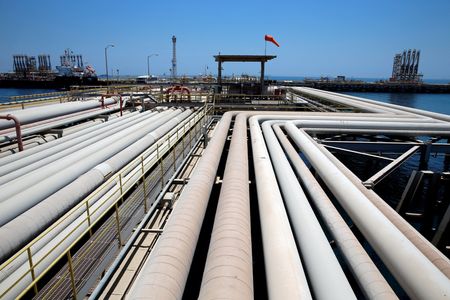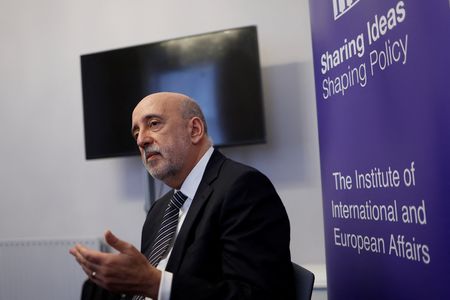(Reuters) – The United States views trade ties with Britain “in a different light” because it does not have a large deficit with the country, but difficult issues remain on tariffs, a senior British cabinet minister said on Sunday.
Since returning to power, President Donald Trump has sent shockwaves through global capitals by threatening or imposing high tariffs on imported goods into the U.S. as part of his trade policy overhaul.
Business Secretary Jonathan Reynolds told broadcasters Britain had a balanced trading relationship with the U.S. and he reported “good engagement, good conversations” in his meetings with the Trump administration on the issue.
“They see us in a different light. It doesn’t mean it’ll be plain sailing for us. We’ve got some difficult things to agree upon, but they recognise the relationship is different,” Reynolds said.
Last week, Reynolds said Britain would seek to persuade the U.S. government that its steel and aluminium products should avoid tariffs due to the sensitive role they play in the U.S. defence sector and its manufacturing supply chains.
Trump said on Sunday he would introduce new 25% tariffs on all steel and aluminium imports into the U.S., on top of existing metals duties. He said earlier in February, when talking about tariffs in general, that he thought something could be “worked out” with Britain.
Both countries report trade surpluses with each other – including goods and services – owing to measurement differences, according to Britain’s Office for National Statistics.
British Prime Minister Keir Starmer hopes this will work to his advantage in avoiding tariffs.
Reynolds said he had talked about the trade relationship with Mark Burnett, Trump’s special envoy to Britain, and Kevin Hassett, the president’s top economic advisor.
Britain published a major consultation for its steel industry on Sunday, weeks ahead of schedule due to Trump’s announcement of fresh tariffs on steel imports into the United States.
Trump has said his sweeping tariffs will level the playing field for American goods abroad and reinvigorate a declining U.S. manufacturing base. They have also sown confusion among businesses and irked long-standing U.S. allies.
(Reporting by Andy Bruce; Editing by Helen Popper)








